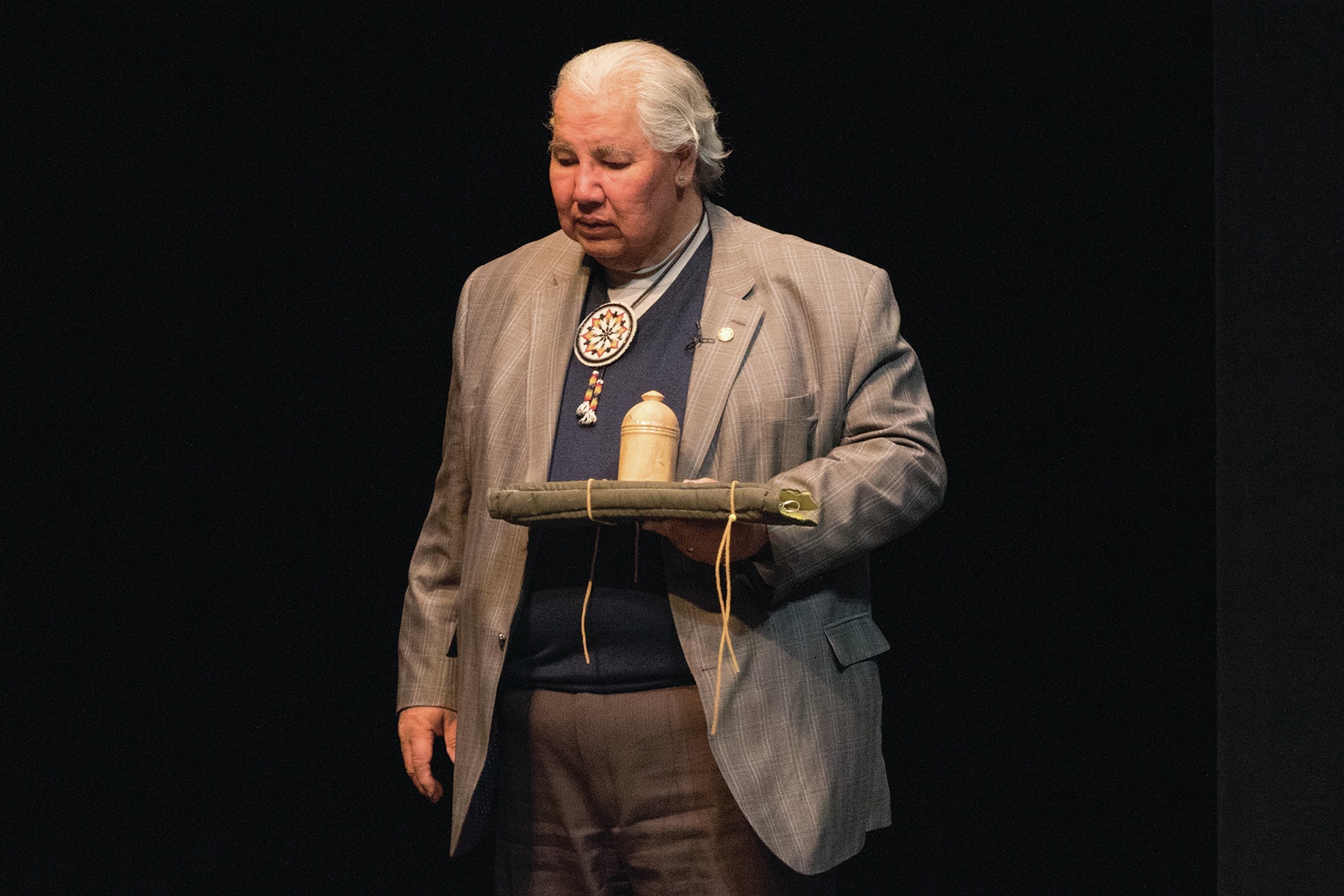Last week the community was privy to an emotional and enlightening presentation by Justice Murray Sinclair, chair of the Truth and Reconciliation Commission (TRC), who shared in detail the lasting effects of residential schools in Canada.
Sinclair was brought to the City via the Perspectives Series, hosted by Red Deer College. This particular series brought Aboriginal drumming at the College entrance, prayers by local elders and attendance by dignitaries including the Minister of Indigenous and Northern Affairs, Carolyn Bennett.
As the chair of the TRC, Sinclair has been dedicated to understanding what occurred in residential school systems and releasing that information – and the repercussions – to Canadians.
“Now, we are more aware than we’ve ever been with what Canadian society has done in the past – intentionally and otherwise – and now we are left with this legacy,” he said.
“We need to fix this legacy that’s been inherited into our society. Building on the experiences of the past will require us to understand what went wrong and to not do it again.”
During his presentation, Sinclair acknowledged the treaty land where Red Deerians reside – Treaties 6 and 7 – and also asked survivors and family members of survivors of the residential school system to rise to be acknowledged. Approximately 40 people in the sold-out auditorium stood up as a testament to the legacy left in the community.
The work of the TRC has been in motion for six years. The commission travelled across Canada to interview survivors of the Residential Schools system, to speak with honourary witnesses including family members of survivors and to investigate government records of the schools and what occurred there.
The TRC put forth a list of 94 Calls to Action in May 2015. Sinclair explained that those calls to action were the result of speaking with over 6,000 witnesses and survivors, investigative research and a new understanding of the lasting results of the residential school system.
“Simply, the calls to action are a means by which we move forward in the future. If we spin our wheels in anger, we won’t accomplish much. The important question we must ask ourselves now is, ‘Knowing what we now know about the past, how are we going to move forward in the future?’ That’s the key,” Sinclair said.
Sinclair added he is hopeful to see some signs of changing relationships between Aboriginal and non-Aboriginal people.
“I think change is going to occur. We recommended a process of change that recognizes all of the things that we see as needing to be taken into account during that changing process,” he explained.
“Since the calls to action were released in 2015, even without governmental action, I noticed institutions in society are starting to do things differenty. Post-secondary institutions, educators generally and churches began to change the way they operated. That’s the beginning of change,” he said.
Sinclair added with the work of the TRC complete and their findings available to the public, he feels people can no longer declare they were unaware of the problem. He said this understanding will hopefully lead to better relationships in the future.
He shared videos of actual testimonies given by survivors to help the attending crowd understand some of the horrible acts committed in Canada. He explained in great detail, and with the perspective of a well-learned lawyer, the way the Government of Canada created laws that allowed them to discriminate against Aboriginal people, including the Indian Act of 1876.
“I went to a public school that taught us the very same thing that was taught in residential schools: we were told that Indigenous people were inferior, that we had no culture worth speaking of and were not worthy of respect. We were told we were heathens – a violent people. We were taught that we were lucky to have been saved by the Europeans,” he said.
“Whether you know it or not, that message was part of your educational system. You have been taught to believe in a situation and a relationship that is based on a mythology of Indigenous inferiority, and the myth of European superiority.”
Sinclair stated he is eager to continue the work of truth and reconciliation in Canada, and his recent appointment to the Senate would not impede on this ability.
kmendonsa@reddeerexpress.com



